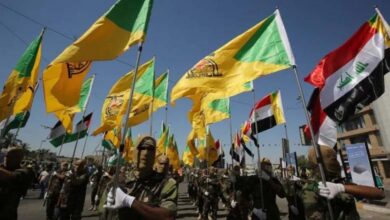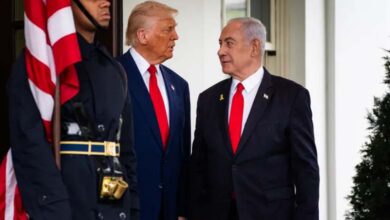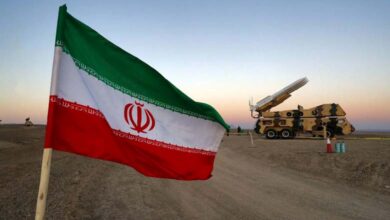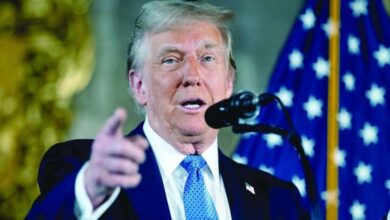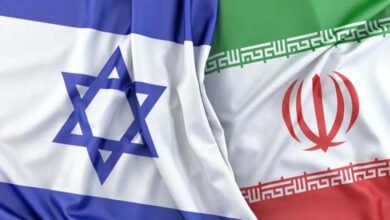Al-Sadr hints at possible shift from election boycott
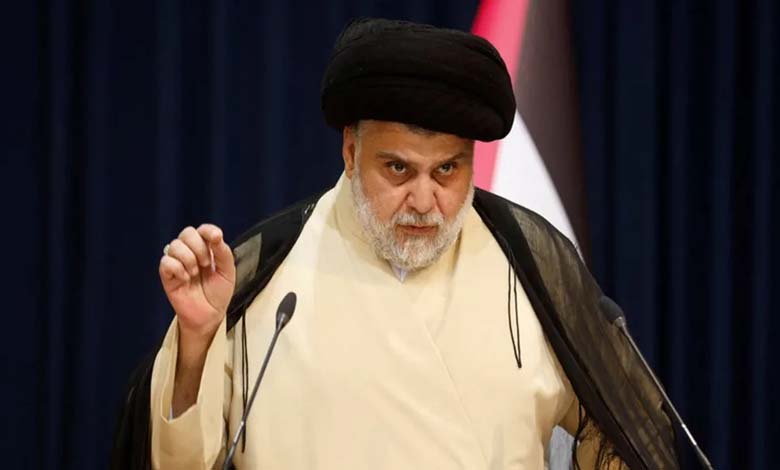
Saleh Mohammed al-Iraqi, a close associate of Moqtada al-Sadr, has declared that the leader of the Sadrist movement would only end his boycott of the upcoming legislative elections in exchange for comprehensive reform and the replacement of senior officials currently in power.
In a significant political development, the Sadrist movement has hinted at the possibility of revisiting its earlier decision to boycott the parliamentary elections scheduled for November. These signals came through Saleh Mohammed al-Iraqi, a prominent media figure known for his close ties to the movement’s leader, Moqtada al-Sadr.
-
Political Corruption Decides al-Sadr’s Decision to Boycott Elections
-
Al-Sadr Calls on Government to Punish Those Intervening in Syria
Although al-Sadr had previously issued firm declarations against any return to the electoral scene—going so far as to ban any faction within the movement from participating—the recent messages conveyed by al-Iraqi have reopened speculation about a potential reversal. Such a shift, however, would be contingent upon the implementation of “radical reform” and “comprehensive change.”
In a social media post, al-Iraqi relayed a more detailed stance from the cleric, clarifying that the boycott was not absolute. Its end would depend on meeting several demands, foremost among them the removal of the ruling elite.
-
Iraq’s crisis gets more complex, waiting for a lifeline
-
Al-Sadr’s use of the term Arabian Gulf provokes Iranian anger
Al-Sadr stated that “the real alternative to the boycott is the replacement of the current faces (shlaa’ qalaa’), in the hope that doors to reform may be opened, submission to the corrupt closed, the people safeguarded from uncontrolled weapons and the repression of dissent, rid of polluted water, the return of Iraq’s rightful share of water and electricity, the protection of borders against terrorism and smuggling, and freedom from foreign agendas that have weakened both the faith and the nation.”
He further emphasized that “the alternative to the boycott is comprehensive reform, a change of faces, and even a change of mentalities, to save Iraq by political and legal means without foreign interference—though such prospects remain doubtful.”
-
Al Sudani’s Government Presents Iran With Opportunity to Consolidate Iraq Hegemony
-
Development leader in Iraq: Will Moustafa al-Kazimi win a second term?
These remarks, despite their sharp tone, outline for the first time since the boycott decision a “scenario of alternatives” that could allow the movement to reconsider its position, provided a true structural transformation of governance takes place.
Earlier this year, in March, al-Sadr had reiterated his refusal to participate in the next elections, citing entrenched corruption and the dominance of “the corrupt” over state institutions, going so far as to claim that Iraq was “breathing its last breaths.”
-
Iraq: al-Kazimi’s achievements allow him to return to the Prime Ministry?
-
Al-Kazimi’s success may lead to a second term as prime minister
Back in June 2022, he had taken the drastic step of withdrawing from the political process altogether, pulling out his 73 lawmakers from Parliament and asserting that no return was possible under the continued corruption and sectarian quota system.
Nevertheless, analysts see the latest statements as signaling a potential shift—albeit indirect—in the movement’s rhetoric. They may serve as psychological preparation for his supporters, or as an opening to reconsider participation should political balances shift or new compromises emerge.
-
Iraq Elections Reshape Political Alliances
-
The Brotherhood of Iraq…Qatar supports them and they serve Iran’s sectarian aims
It should be recalled that the Sadrist movement won the largest number of seats in the October 2021 elections, securing a broad popular mandate. However, this victory did not translate into government formation due to obstruction by the Shiite Coordination Framework, which turned to the Federal Court to block the election of a president, thereby paralyzing the process.
That deadlock led to the collapse of the tripartite alliance between al-Sadr, the Kurdistan Democratic Party, and the Sovereignty Alliance, followed by the withdrawal of Sadrist lawmakers from Parliament and the movement’s exit from the official political framework.
-
Iran Trains al-Assad Loyalists in Iraqi Camps to Destabilize Syria
-
Growing Calls to Turn Halabja into an Iraqi Governorate and Justice for the Victims
While recent signals suggest some openness, the conditions set by al-Sadr—radical reforms, dismantling of militias, and handing over weapons to the state—remain highly difficult to achieve. On multiple occasions, he has demanded the dissolution of all armed factions, including his own Peace Brigades, an objective deemed unrealistic in the current environment.
Research centers and political actors warn that voter turnout could drop significantly if the Sadrist movement maintains its boycott, given its considerable support base, particularly in southern and central provinces.
-
Iran Authorizes Al-Sudani to Decide the Fate of Iraqi Factions Loyal to It
-
Tehran Begins Renovation of the “House of Resistance” by Expanding Armament for Iraqi Popular Mobilization Forces
Against this backdrop, the Sadrist movement appears to be walking a fine line between maintaining its boycott and signaling conditional openness to a return. While the likelihood of fulfilling its stringent conditions remains slim, the repeated allusions to “alternatives to the boycott” leave the door ajar for a potential reversal, should the political landscape shift.



